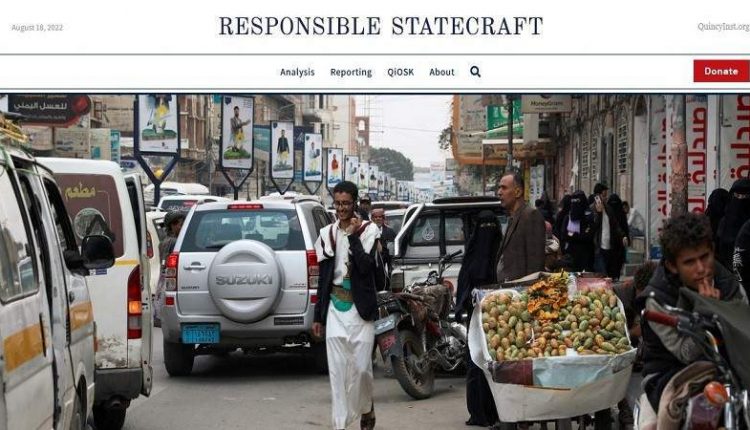American Magazine: “How Long will The Fragile Truce in Yemen Last?”
“Responsible Statecraft” magazine reported on the temporary truce in Yemen, concluding that all foreign interference, politically and militarily, must be ended to ensure a lasting truce and lasting peace.
The report of the magazine affiliated with the Quincy Institute for Responsible Statecraft touched on the fact that despite the truce, the blockade has yet to be lifted completely, thereby further deteriorating the humanitarian condition .
Source: Responsible Statecraft Website

